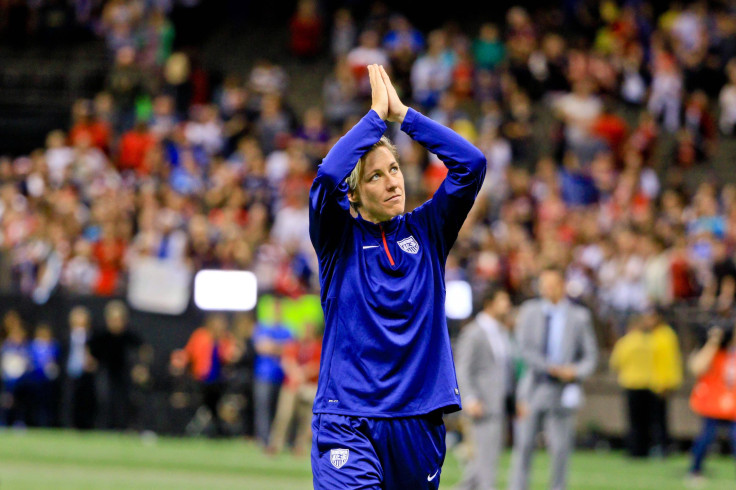As Female Soccer Players Demand Equal Pay, One Men's Team Requests Tax Breaks

While members of the national women's soccer team pursue a federal complaint over allegations of pay discrimination, one of the all-male professional teams is asking for a very different kind of payout.
In November, the soccer team Minnesota United FC announced plans to build a St. Paul stadium that would seat up to 19,000 game attendees. But in order to get the stadium built, team owner William McGuire is seeking an exemption from state property taxes, worth somewhere in the tens of millions range.
The Minnesota Senate's Taxes Committee signed off on the tax break last week. The St. Paul City Council had already pledged $18.4 million to support infrastructure surrounding the planned site of the venue.
Subsidies and tax breaks are commonplace in professional sports, despite economic studies showing that stadium construction doesn't boost local economic growth. In 2012, St. Paul's twin city of Minneapolis signed what MarketWatch described as one of the worst deals in the country with its local sports team when city officials agreed to pay $500 million toward a new Minnesota Vikings football stadium.
The subsidy going to St. Paul's soccer stadium is modest in comparison. But it underscores the extent to which public funds keep America's professional sports industry afloat: McGuire, owner of the team, said during a state Senate committee hearing last week that Minnesota could lose its soccer franchise without the tax break.
The vast public subsidies going into professional sports belie the claim, made by critics of last week's discrimination complaint against Major League Soccer, that pay inequities are the natural result of free market pressures. Retired American soccer player Landon Donovan made the case against mandating equal pay on Twitter last Thursday when he said both the women's and men's leagues should be paid "commensurate with the revenues they produce, not based upon what the other makes."
Both #USMNT and #USWNT should be paid commensurate w/ the revenues they produce, not based upon what the other makes https://t.co/Di7yUzf4Te
— Landon Donovan (@landondonovan) March 31, 2016
But those revenues might look very different without taxpayer support. (Some teams from the National Women's Soccer League also play in stadiums that are supported with public funds.)
Public subsidies are already part of the debate when it comes to fair compensation for student athletes, who are typically not paid at all. In a February Chicago Tribune op-ed called, "Enough madness: Just pay college athletes," economists Allen R. Sanderson and John J. Siegfried noted that university athletics are often supported by "mandatory student fees, scarce general institutional funds, public monies from state governments and contributions solicited from alumni and well-heeled donors."
(Similarly, labor advocates have pressed for higher pay from low-wage employers by drawing attention to what they describe as de facto corporate aid in the form of food stamps and other safety net programs. Last year, UC Berkeley Labor Center chairman Ken Jacobs argued in the Washington Post that public assistance programs effectively subsidize low-wage employers by making up the gap between a suitable living wage and what these companies actually pay their workers.)
A statement last week from U.S. Soccer said it would examine the pay issue for female players in union negotiations.
"We are committed to and engaged in negotiating a new collective bargaining agreement that addresses compensation with the Women's National Team Players Association, to take effect when the current CBA expires at the end of this year," said U.S. Soccer.
© Copyright IBTimes 2024. All rights reserved.






















